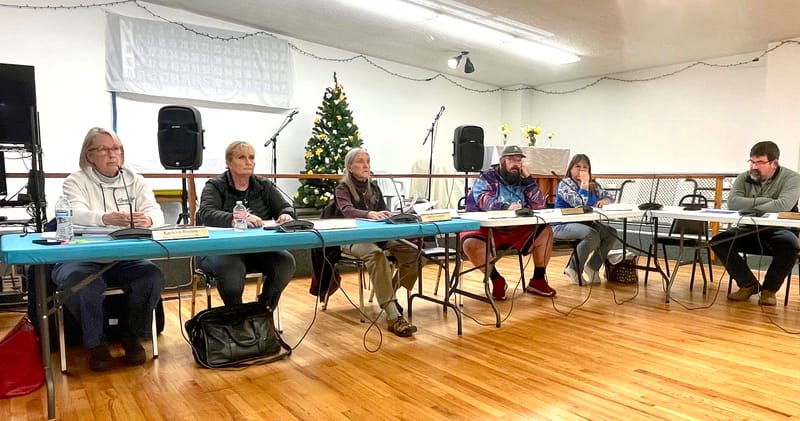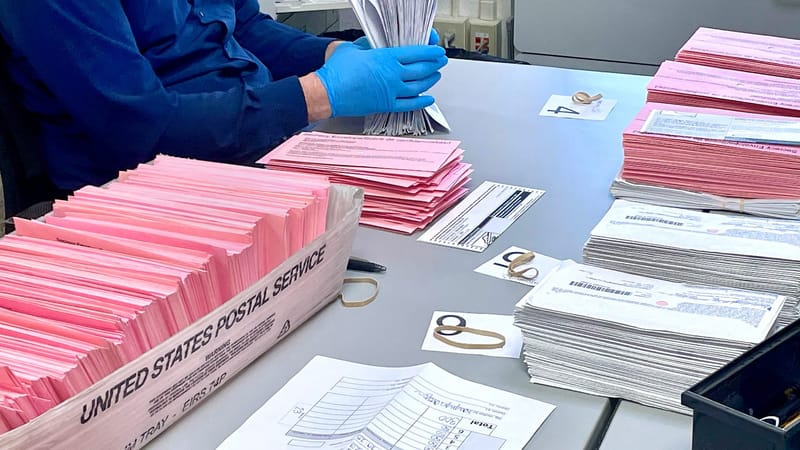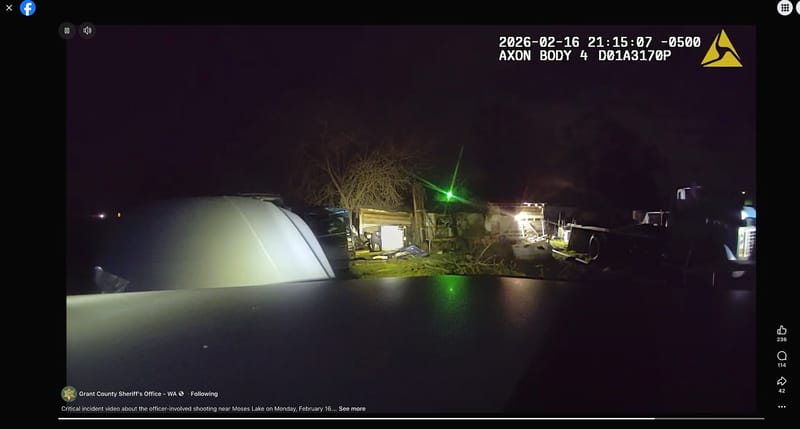County okays solar farm CUP; will get $2.85M for mitigation
EPHRATA – Grant County commissioners on Tuesday unanimously approved a land-use permit that can lead to the proposed development of a large solar energy facility on privately owned rangeland on the Beezley Hills about four miles southwest of Ephrata.

EPHRATA – Grant County commissioners on Tuesday unanimously approved a land-use permit that can lead to the proposed development of a large solar energy facility on privately owned rangeland on the Beezley Hills about four miles southwest of Ephrata.
The decision by commissioners Kevin Burgess, Cindy Carter, and Rob Jones came at the request of a Nashville, Tennessee-based renewable energy firm doing business locally as Silicon Ranch Quincy Valley Solar LLC.
The company has entered into a 30-year lease with Bill Sieverkropp of Ephrata and members of his family, who are longtime wheat growers and cattle ranchers in the area.
Quincy Valley Solar has leased about 1,770 acres of grazing grounds zoned rural resource which traverse about a 2-mile span. The company has released initial plans calling for development of a 130-megawatt, utility scale photovoltaic solar energy facility and 20-megawatt battery energy storage system with four hours of storage output capacity.
Within the project area, fencing would enclose about 930 acres of components including thousands of solar modules along with cabling, inverters, transformers, and substations. Grant County zoning codes allow such projects in certain rural areas and a mitigated determination of non-significance prepared by the county’s development services department was approved in July 2024 by an independent hearing examiner.
Quincy Valley Solar will pay about $2.85 million to Grant County for compensation of habitat loss, county development services director Jim Anderson-Cook said on Tuesday. In addition, the company will ensure liability protection for the county from any damage claims and provide a decommissioning plan within three years of ceasing power generation operations, said Anderson-Cook.
He said 15% of the payment money would go toward the county’s administrative costs. Grant County treasurer Darryl Pheasant also sought assurance that any received funds would all be considered public monies which could be utilized in the county’s investment pool.
Pheasant voiced some frustration that, under state regulations, the project was not considered new construction, which would provide more property tax revenue to the county. Pheasant said he is involved in discussions with state officials to revise the law to address the issue.
Anderson-Cook said the county would be working with the state Department of Fish and Wildlife and Grant County Conservation District to review mitigation proposals for land restoration measures or comparable land swaps which result in “net ecological gains to create shrub steppe habitat.”
The only opposition to the conditional-use permit was voiced by Guy Moura of Nespelem, a cultural resources official for the Colville Confederated Tribes. Moura said the tribes believed there were procedural errors in the permitting process and that the development poses adverse impacts to cultural resources in the area.
In response, commissioner Cindy Carter said the county conducted its public notification process properly. And Anderson-Cook said an appeal of the determination of non-significance needed to be filed within 14 days of the hearing examiner’s approval last summer.
Any appeal now by the tribes would have to be filed in superior court, he said.
Hanna Nordin, a representative of Quincy Valley Solar, said the firm is “respectful of the (Colvilles’) concerns” and amenable to ongoing discussions with the tribes. Nordin said a buffer area has been designated, all work crews will be briefed where cultural resources are located, an archaeologist will be on hand during site preparation, and there is a plan for “inadvertent discovery” of any resources or artifacts.
In reference to Pheasant’s concerns, Nordin said leasing the land usually involves paying associated property taxes to the county and that there is public value from the development by providing lower-cost energy.
Nordin and another company representative, Aurora Sepp-Peterson, did not say when any construction would actually get underway. Silicon Ranch did not immediately reply to an email from GCJ.news regarding a timeline of the project and information about how any power generation would be marketed.
Following Tuesday’s hearing, Sieverkropp said he had been approached several years ago by a realtor inquiring about land that could be utilized for solar farm development. Sieverkropp declined to disclose how much money Silicon Ranch Quincy Solar was paying to lease the property, which is roughly located between Roads H-NW and J-NW on south-facing, undeveloped rangeland overlooking Martin Road between Ephrata and Quincy.

On Wednesday, Grant County PUD spokesperson Christine Pratt said the utility district does not have much information about SR Quincy Solar beyond awareness of the conditional-use permit. But Pratt said any determination on whether the district has an obligation to buy or pay for renewable energy power “depends on the sources and the circumstances.”
Currently, Grant PUD has a “queue” of six active utility-scale, solar-related projects waiting for hookups. “Some just need transmission to send their generation to customers outside the county. Others may be interested in selling locally, too,” said Pratt.
The companies’ names remain confidential until they become customers, she said.
In April, PUD commissioners unanimously approved a 20-year power-purchasing agreement with Quincy Solar for a 120-megawatt solar development to be built in the Rocky Ford area, northwest of Grant County International Airport. The agreement would begin Oct. 31, 2027. Power purchased would help Grant PUD meet its clean-energy obligations under the state’s Clean Energy Transformation Act. It also contributes to capacity planning for joining the Western Resource Adequacy Program, which matches utilities with capacity deficiencies to utilities with excess capacity to help ensure a reliable energy supply.




